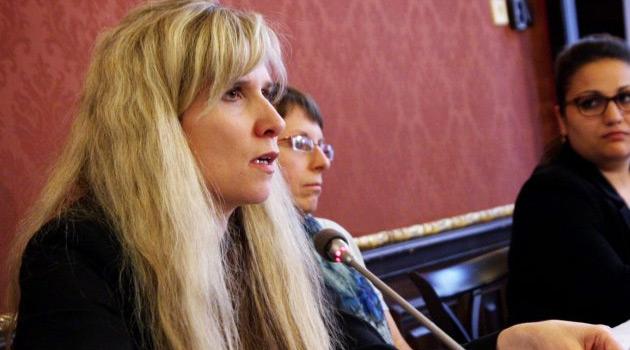Czech Education Minister: Amended law won't close schools but will change curriculum

School closures are not planned in the Czech Republic in connection with legislation on inclusion that will come into force on 1 September 2016. Czech Education Minister Kateřina Valachová (for the Czech Social Democrats) made that announcement at a press briefing on 23 September.
No such plans are in place even for the so-called "practical primary schools" in which a large proportion of children with mild mental disability are being educated. The minister’s remarks were made in response to media reports of possible school closures.
Czech daily Mladá fronta Dnes reported on 23 September that as of 1 September 2016 the country’s "special schools" would close. The minister pointed out in response that the concept of a "special [zvláštní] school" has not been recognized by Czech law since 2005 and that the ministry has no powers to close schools.
"There is also no coordination underway with school founders to close such schools," she added. The inclusive legislation defines measures to be taken to aid children with special educational needs with being educated in mainstream schools.
What used to be called "special [zvláštní] schools" are now usually called "practical primary schools". Generally this is a simplified term used to refer to schools with high proportions of mildly mentally disabled pupils.
From a legal perspective such schools are in the same category as mainstream primary schools. The only schools not in that category are "special primary schools" (základní školy speciální) for pupils with other kinds of disabilities who cannot be included in mainstream education.
Concurrent with the preparations for the launch of the inclusion legislation the Education Ministry is working to abolish the reduced curriculum designed for use with mildly mentally disabled pupils. The "mild mental disability Appendix" will be abolished, although necessary elements of it should be incorporated into the mainstream curricular framework program for use with specific children on the basis of their individual needs.
The ministry reminded the press that some children diagnosed with mild mental disability are now being educated according to the regular curricular program. Of the overall number of more than 14 000 children diagnosed as mildly mentally disabled, approximately 3 500 pupils are now being educated according to the regular curriculum.
In the so-called "practical primary schools", which offer smaller classes with special support services, children are not usually taught only according to the simplified curriculum. "There are only 14 schools educating children exclusively according to the Appendix for mild mental disability, a total of 450 pupils," the minister said.
These schools will have the chance to adjust and to begin teaching as of September 2016 according to the new primary education program. According to data from the Czech School Inspection Authority, of the more than 4 000 primary schools in the country, 1 351 had at least one mentally disabled pupil enrolled in them during the past school year and statistics show that the number of mildly mentally disabled children attending mainstream classes is rising.